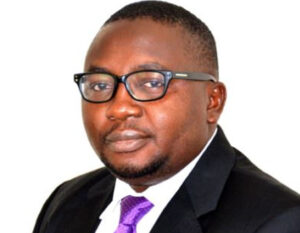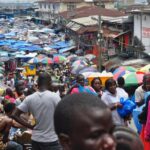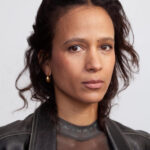The minister of power, Adebayo Adelabu, has described as shameful the fact that Nigeria’s electricity transmission and distribution capacity has remained stagnated at about 4000MW for several years,
Adelabu, who spoke during a parley with power correspondents in Abuja yesterday, stressed that the situation was not acceptable.
He also said he had ordered investigation into the extension, by five years, the licences of Electricity Distribution Companies, otherwise known as DisCos.
“When I came in, the licences I saw were for 10 years, 2013 to 2023, but along the line I spoke to the Nigeria Electricity Regulatory Commission (NERC) chairman he said they had extended the licences by another five years. We are trying to review the correctness of that. We have ordered an investigation into the extension of the licences (to see) if they are actually in order,” he said, adding that despite the extension, the licences can still be revoked if the DisCos do not fulfil their performance benchmarks.
The power minister also disclosed that plans had been concluded to organise a Power Sector Retreat between December 12 and 14, 2023, which shall produce a workable roadmap for the sector.
Adelabu stressed that no nation can grow its economy, industries or any sector without a reliable power sector, noting that countries that had grown significantly were those who identified electricity as the engine or driver of growth.
READ ALSO: This Issue Of Electricity
“For example, South Korea, with a 49 million population, generates and distributes 130,000 megawatts of power. So companies like Daewoo, Hyundai, LG and others are now giants of industry, having grown from one-shop companies that they were in the 1960s.
“Secondly, China with a 1.4 billion population generates and distributes 1.3 million megawatts of electricity.
“So when we say we are over 200 million people and what we generate and distribute on our national grid is just 4,000 megawatts, it is shameful; it is not acceptable. We must achieve better results,” the minister ordered.
 Adelabu also announced that Nigeria’s second-largest hydroelectric power station, the 700 megawatts capacity Zungeru Power Plant, was ready to begin operations before the end of November.
Adelabu also announced that Nigeria’s second-largest hydroelectric power station, the 700 megawatts capacity Zungeru Power Plant, was ready to begin operations before the end of November.
“I can confirm to you that Zungeru Hydropower Plant is ready to generate upward of 700MW of power. The concessioning has also been approved by Mr. President. So we will start operating the Zungeru probably from the end of this month.
“The only thing remaining in Zungeru is just to complete the evacuation infrastructure so that the entire 700MW being generated can be evacuated into the national grid. So Zungeru is ready and it is an addition to our power generating capacity,” he said.
Zungeru hydropower plant is the largest hydropower plant in Nigeria and is located on the Kaduna River in Niger State.
Speaking further on power sector administration in Nigeria, the minister said he did not believe that privatisation of the power sector assets and infrastructure was the way to go, and declared that commercialisation could have been better as it required huge financial investment outlay which the private sector may be able to afford, or may not be willing to commit because its long term returns yields.
According to him, the government may need to review the structures of DisCos with regards to streamlining the areas of coverage which, the minister observed, are too large for each of the DisCos to manage effectively.
On issues of cost reflective tariffs, the minister said the time is not yet right for implementation of cost reflective tariffs, adding tariffs could have been increased months back but President Ahmed Bola Tinubu did not approve of it.
He said that the government is still subsidising electricity tariffs until such time the government is convinced that there is incremental power supply.
According to him, while Nigeria generates upward of about 50,000MW of electricity, 95 per cent of this is through combined diesel and petrol home generators, adding that the people would not have a problem with tariffs increasing so long as there is incremental power supply.
He urged states to take advantage of the reformed power sector Act and invest in DisCos within their states, utilising existing power lines instead of creating entirely new power infrastructure.
The minister also disclosed plans to focus on alternative sources of power generation in a bid to address the nation’s electricity needs.
According to him, the ministry under his leadership will harness hydro, wind and other sources.
“What we are trying to do is to de-emphasis the national grid for now and focus on distributed power, so, we can still generate power and get it down to consumers without passing through the national grid.
“We have some dams that can generate between 500 kilowatts to five megawatts. We want to focus on that to generate power to identified locations embedded in the distribution network without passing through the transmission network because the capacity of our transmission is still constrained.
“There is also solar energy. There are a lot of investors coming to the ministry, but what we are saying is whoever wants to invest in solar power must identify who the off-takers are off-grid.
“Our focus should be on off-grid power generation and not just solar. We have proposals for offshore wind. We have potential for offshore wind power. In Nigeria, we are a coastal country, from Lekki in Lagos to Ondo, to Delta, Port Harcourt, we can have wind farms that can give clean power. So, this is what we want to do.
“While we concentrate on improving the grid and expanding our capacity, we still want to generate power and distribute it to our people. So, our strategy will be wrapped around using micro and mini-grids to supply power,” he said.
He decried that previous administrations’ focus on establishing more power plants and generating power, without much emphasis on improving delivery and transmission channels.





